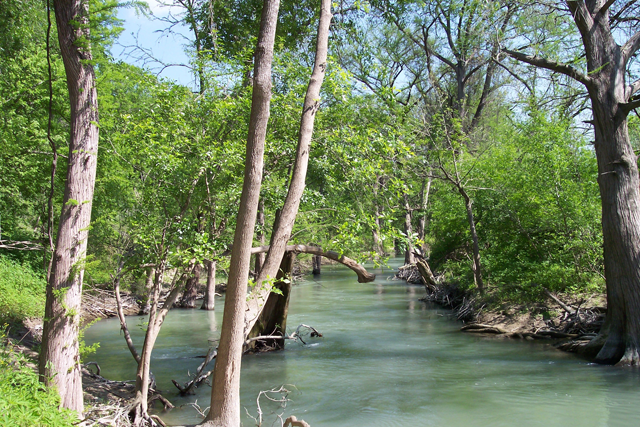Medina River watershed protection planning meeting will be Jan. 9 in Castroville
Residents invited to learn about watershed and improving water quality in river below Diversion Lake
The Texas Water Resources Institute, TWRI, is hosting a meeting in Castroville for those interested in becoming involved in a partnership to improve and protect the Lower Medina River watershed.

The meeting will be at 2 p.m. Jan. 9 at the St. Louis Braden Keller Community Center, 1410 Amelia St.
Jason Gerlich, TWRI research specialist with Texas A&M AgriLife Research in Bryan-College Station, said the meeting is the second in a series of meetings with watershed stakeholders developing strategies needed to address water quality impairments in the watershed.
“The Lower Medina River is currently designated by the state as impaired because of elevated bacteria concentrations,” he said. “There are also nutrient concerns present in the watershed. Both the bacteria impairment and nutrient concern can begin to be addressed through the watershed plan.”
TWRI is part of AgriLife Research, the Texas A&M AgriLife Extension Service and the Texas A&M College of Agriculture and Life Sciences.
Medina River stakeholder-driven process and overview
Gerlich said the second meeting will detail the stakeholder-driven process and provide an overview of water quality monitoring efforts that have taken place in the watershed. Time permitting, information on chapter development will be presented as well.
“We will explain how the process is stakeholder-driven, why they are so instrumental in the development of these plans and create a framework to develop the watershed protection plan within,” he said.
Gerlich said interested stakeholders should become part of the planning process.
“We’re encouraging citizens of the region to attend this meeting, as their input is essential for identifying land and water issues and ensuring that appropriate and desirable management measures are included in the watershed-based plan,” he said.
The institute is coordinating this project along with the San Antonio River Authority. Funding for this effort is provided through a federal Clean Water Act Section 319(h) grant, administered by the Texas State Soil and Water Conservation Board, from the U.S. Environmental Protection Agency.
For more information, contact Gerlich at [email protected] or Patricia Carvajal with the San Antonio River Authority at [email protected]. Read more about the watershed at medina.twri.tamu.edu.


